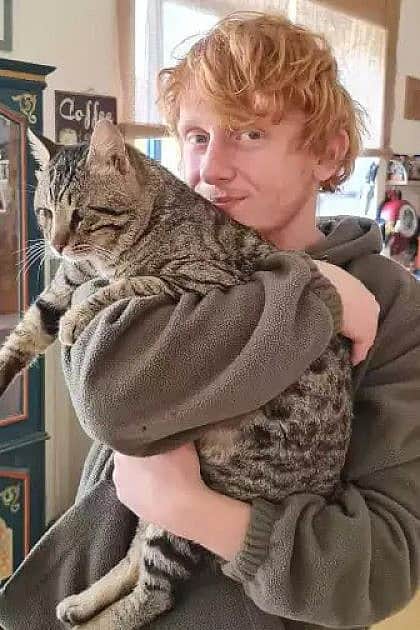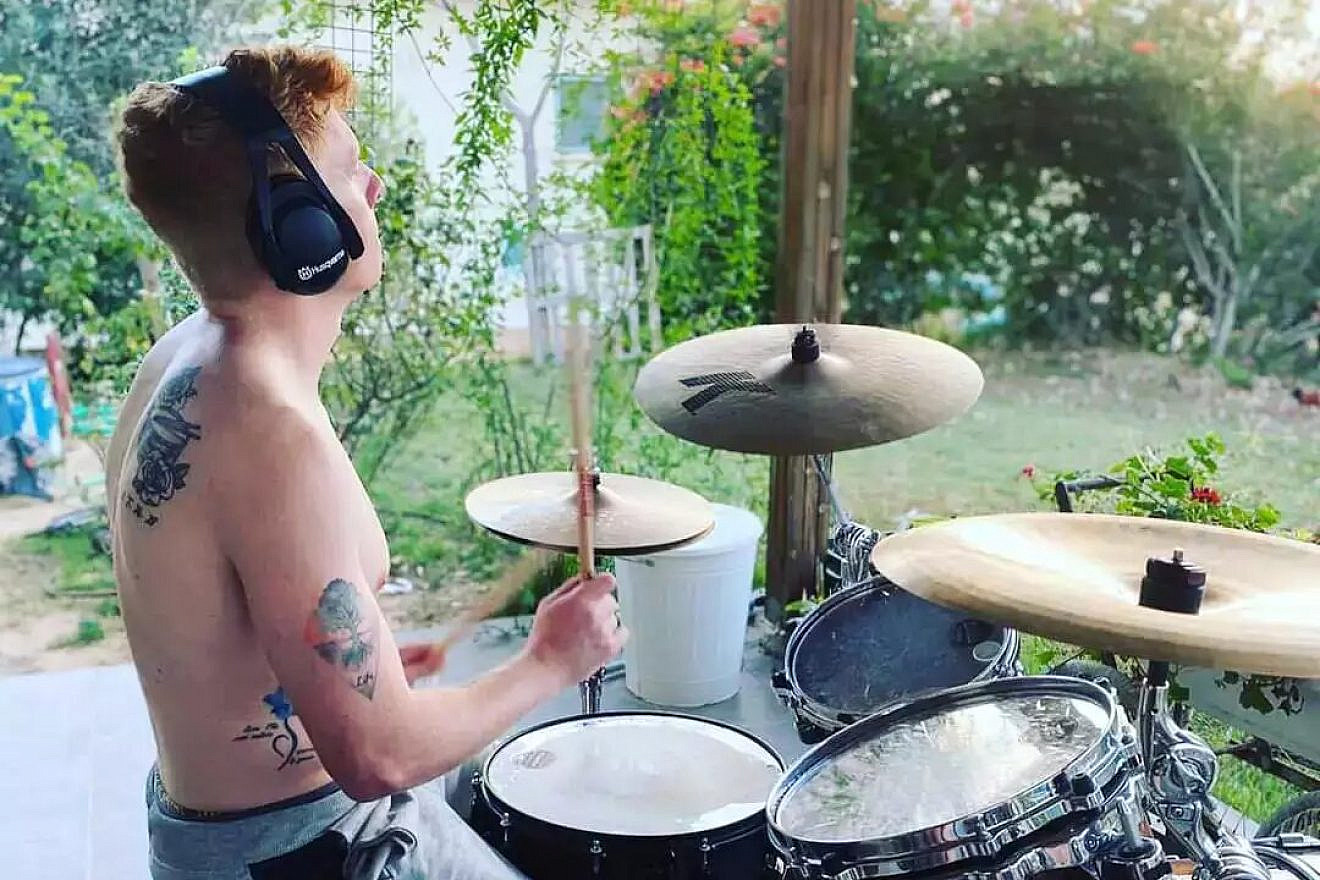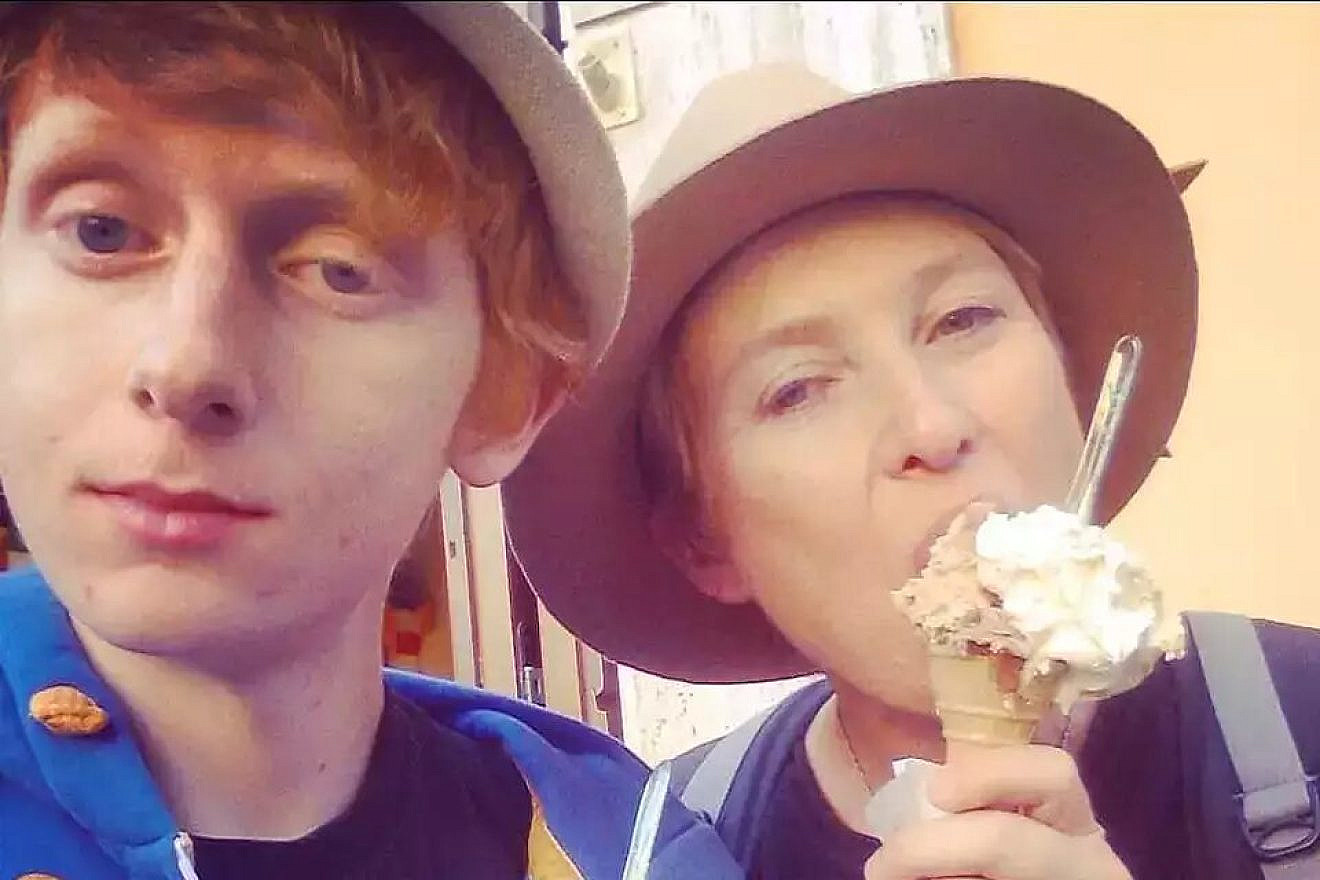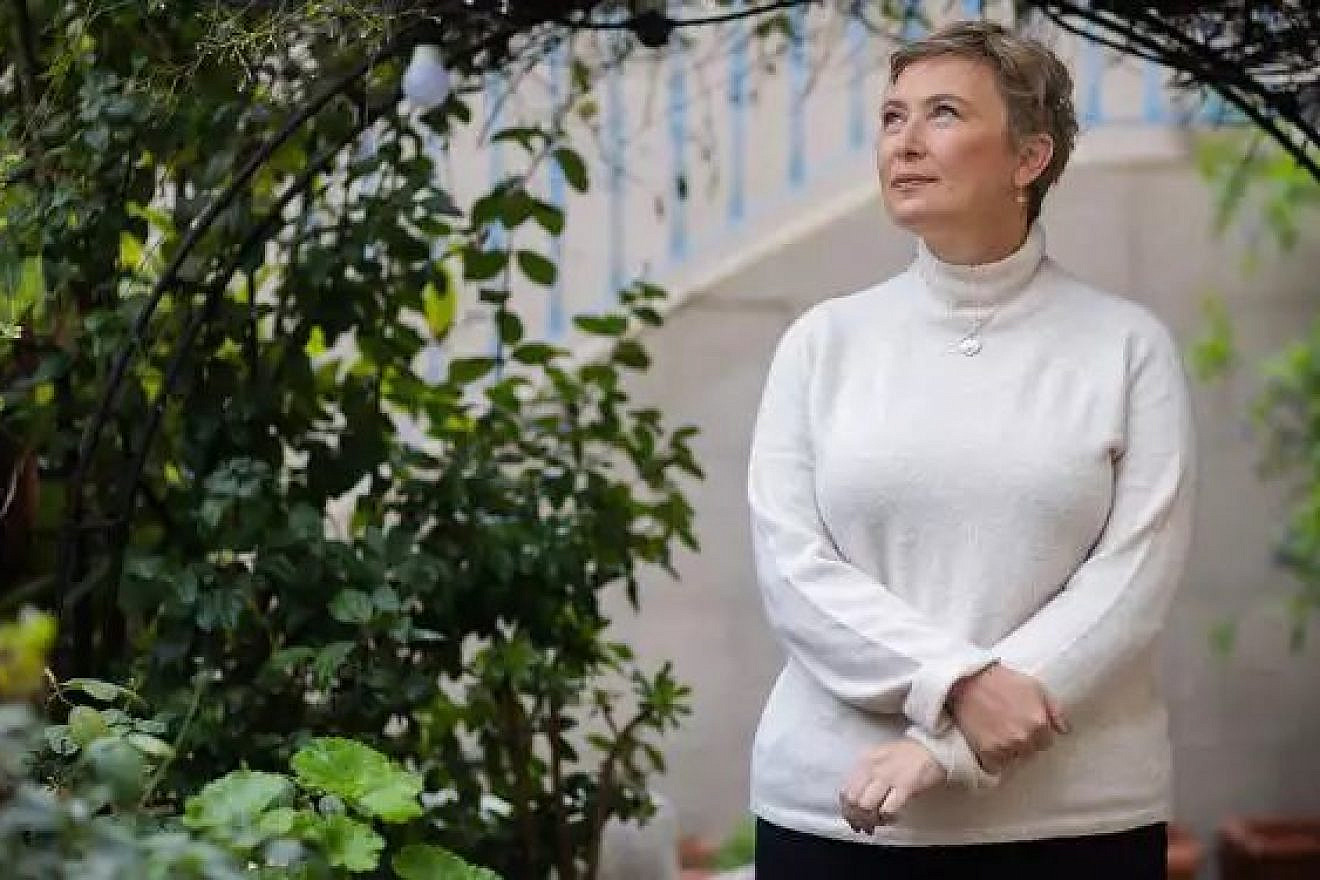Iris Haim touched the heart of the nation when she said she was not angry at the Israel Defense Forces “for even a minute” after soldiers accidentally killed her son, Yotam Haim, along with other two hostages they mistook for Hamas terrorists during the fighting in the Gaza Strip.
Yotam, 28, a gifted drummer, was taken hostage on Oct. 7 and survived 70 days in captivity. The other two men killed in the Shejaia neighborhood of Gaza City on Jan. 15 were Alon Shamriz, 26, and Samer Talalka, 24.
Iris even sent a message to the fighters to boost their morale, saying, “I know that everything that happened is absolutely not your fault, and nobody’s fault except that of Hamas. Don’t think that you killed a hostage deliberately. You have to look after yourselves because that’s the only way you can look after us.”

I meet Iris in Sho’eva, a moshav near Jerusalem, where she and her husband are staying temporarily after being evacuated from Moshav Sde Nitzan near the Gaza Strip. She makes us tea and takes a seat in her armchair, cuddling a furry plump cat.
“The cat came with the apartment, which used to be an art studio and became a residential apartment for us. Sho’eva residents rallied and collected furniture for us. Look how beautiful it is. We left eight cats in Sde Nitzan. Raviv, my husband, who works as a farmer, started going back there, and now he will take care of them.”
Iris radiates strength and calm, but sets boundaries. She says she will not return to southwestern Israel outside Gaza.
“I can’t live there under threat. The rocket sirens take me back to that day. I don’t want to see Gaza either. As far as I’m concerned, may that cursed place be erased from the face of the earth. But I know that it won’t happen and that the threat will remain. I believe that the scene will change a lot. Half of the people who lived in our area will not return, but new people will come, who, due to Zionism, will agree to live in a very dangerous place.”
Before Oct. 7, the Haim family lived with a complete sense of security. They were not affected by the frequent missiles and did not run away during IDF operations either. But perhaps the difficulty for Iris to return now stems from a different reason.
“I can’t sit again on the same balcony where Yotam sat, with the rolling laughter, the cigarette in his mouth, and the cats around him. We laughed a lot together. The children would imitate me and we would burst out laughing. And Yotam was always in the lead.
Iris cannot imagine staying in Sho’eva either. Not between the four walls that saw her anxious to receive word of Yotam and her breakdown when the tragic news arrived.
“Here, on this couch, I broke down and screamed. These were cries of terrible pain. That Friday, when we received the news, I was in terrible despair. I didn’t know how I would manage to get out of this, how to live, how to raise my head.
“There was another breaking moment when we watched the local media do a piece on Yotam. Seeing his childhood photos again broke my heart. I want to turn a new page. We found an apartment in Moshave Even Sapir on the outskirts of Jerusalem, and Raviv will divide his time between the Jerusalem mountains and Sde Nitzan. Yotam is everywhere and will always be in my heart.”
‘Nationwide couples therapy’
Q: How does one exit this circle of sadness? It seems that as a nation we are moving back to Oct. 6, with the division and infighting.
Iris: “We won’t go back to Oct. 6, because we went through amazing things together. We proved to ourselves that we love each other, and we have to remember that all the time, even when we fight. It’s like couples therapy, you have to learn how to fight without destroying each other. We need nationwide couples therapy to know how to fight and argue.
“I lost my son, but I gained my people. I learned who the people of Israel are, and I want to remain constantly in this consciousness that I have the best people. I have no other country. There are and will be fights, but we should not sink into it. We will overcome them and take care of our home, together. How do we do it? I don’t know. But we shouldn’t give up.
“I am interviewed by all the media and I stay with the non-political messages. When the judicial reform was discussed, I thought that my eldest son, Tuval, who is gay, would not be able to go out with his partner, and that they would be put in jail.
“I almost joined the protests. It’s amazing how much the incitement in the media has dumbed us down and destroyed us. Today I understand that people who feed on one-dimensional media allow someone else to control their mind and disrupt their independent thinking. I no longer watch television.
“At any given moment, a meteor can fall on us or a tsunami can occur. Then who will we blame? We will surely blame someone who did not foresee the tsunami in time. If I have a stroke or a heart attack, whom will I blame? For those who live in a false sense of control, everything has been shaken on Oct. 7, but I realized even before that our only control is to choose how to think.”
Q: How did you come to this realization?
Iris: “I am a palliative nurse. I take care of people at the end of life—at the moment when it is most out of our control. My specialty is accompanying dementia patients, a disease without hope, which has no cure and no control over it. The person fades in front of your eyes, talks nonsense, and thinks that his daughter is his mother. There is a lot of frustration and helplessness in this disease.
“I founded an organization called Refuat Haim that provides comprehensive support for caregivers of dementia patients. I teach them to be well in the midst of uncertainty. How? With the help of the insight that there is no control, that we have no ability to influence the disease itself, but we can influence the patient if we ourselves are at ease in the situation.”
During the 70 days that Yotam was in captivity, Iris knew how to recognize that she was in the same loop of uncertainty that characterizes the families held “captive” by the delusions of the dementia patient’s memory.
“I knew that even if I shouted, screamed, prostrated myself, pulled out my hair in the square, and cursed Netanyahu, that would not bring me my child.”

Without background noise
During the uncertainty of the days of Yotam’s captivity, Iris chose to create certainty for herself through the belief that he was alright, with the understanding that thought creates reality. Iris exercised that right to the end. She imagined her son drumming on his body and also believed that he received the medication he needed.
“Yotam was born with an intestinal malformation, and suffered from chronic inflammation of the spine. He received a very expensive biological drug. It was clear to me that he would not get the injection he needed in captivity, but I believed he did receive something that would ease his pain. That worked for me. I realized that I could only rule this little space of mine,” Iris says, putting one hand on her heart and the other on her head.
After 53 days, Iris received word of Yotam from a Thai hostage who was released, who told her that Yotam did indeed drum on the floor and that he even received painkillers to help with the pain.
Iris decided that she trusts the IDF and the government, even though she did not choose it, as one whose worldview aligns more with the center-left. “This is the current government, and until the next elections, I trust it. I only have one country, and it cannot be that there are two countries here, the State of Israel and the Hostage and Missing Families Forum. I didn’t think it was right to shout that nothing is being done while soldiers are fighting in Gaza and being killed to free hostages.
About two months before being taken captive, Yotam, who struggled with physical and mental difficulties, asked his parents to appreciate him more and to look at his strong sides—as if subconsciously preparing his parents for what would soon occur.
“We agreed that he would start to show his strong sides and I decided that whenever Yotam showed a red flag I would not immediately jump in to help and take over.”

Q: What do you mean by “red flag”? Did Yotam have suicidal thoughts?
Iris: “Never anything in action, but there was a lot of talk about it. And it’s amazing how this young man, who talked about death, in the end, survived in captivity and did everything possible to live. He truly showed his strength in captivity. I’m afraid to see his last video published by Hamas. When I saw a picture from the video, I said he looked like a Holocaust survivor, so thin. I realized that’s enough for me right now. But I know he sent us messages. I was told he said there: ‘Mom, don’t worry about me, I’m strong.’ It’s crazy.
“He did an amazing job there and discovered his strengths. He could have been slaughtered on Oct. 7 but his soul chose to remain in the world for another 70 days and allow him to die as a hero and as a free man, so that everyone will know him and so that we can, in his name and memory, help people and have a positive influence.”
Originally published by Israel Hayom.


























